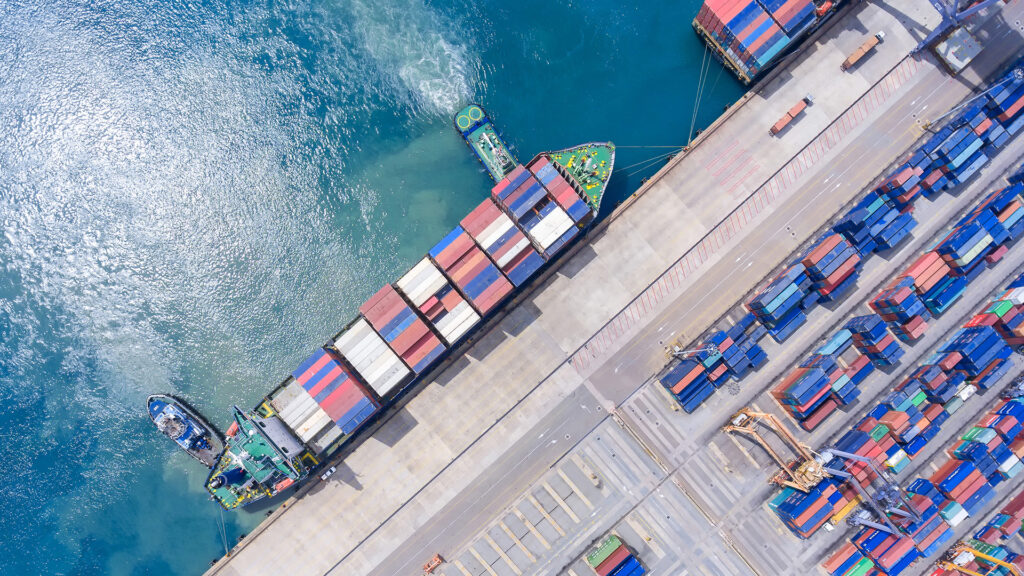Suspension of Iran sanctions – a golden opportunity?
The announcement on 20 January 2014 of a suspension of some of the EU and US sanctions against Iran demonstrated the tangible results of many hours of highly-charged diplomacy, and showed that some form of deal with Iran was possible.
But now that the euphoria has died down, traders, shipowners, insurers, brokers and banks have some difficult decisions to make about the extent to which they are now prepared to trade with Iran. In particular, they need to decide whether the new measures have changed the legal landscape and opened up significant opportunities, or whether they have just added a new layer of complexity to what was already an incredibly complex patchwork of overlapping restrictions.
Background
On 24 November 2013, following months of multilateral and bilateral talks, a Joint Plan of Action (the JPoA) was published, outlining the terms of an agreement which had been reached between Iran and the P5+1 (ie China, France, Germany, the Russian Federation, UK and US).
The JPoA1 outlines a series of reciprocal undertakings between Iran on the one side and the P5+1 on the other. In essence, if Iran can demonstrate that it is taking steps to ensure that its nuclear programme will be exclusively peaceful, then it will receive tangible sanctions concessions in return.
The measures announced on 20 January are the first stage in what is intended to be a long-term comprehensive solution. They show the EU and the US honouring their commitments under the JPoA, following confirmation from the International Atomic Energy Agency (IAEA) that Iran was implementing its initial commitments under the JPoA.
The EU suspension takes the form of a Regulation (Regulation 42/2014) which amends Regulation 267/2012 (as previously amended by, amongst others, Regulation 1263/2012).
The US suspension takes the form of joint guidance published by the US State and Treasury Departments2 and FAQs published by the Treasury Department3.
We include our understanding of the US measures in this Briefing for context only, to indicate where detailed US legal advice might be required.
Suspension of sanctions – general comments
Both the US and the EU suspensions are limited (and reversible) and both sets of sanctions relate exclusively to conduct which falls entirely within the six month period from 20 January to 20 July 2014. In particular, contracts need to be entered into no earlier than 20 January and fully executed no later than 20 July 2014, failing which the conduct will be sanctionable.
It is important to stress that the great majority of the restrictions on trade with Iran remain in place and every aspect of every trade needs to be carefully scrutinised to be sure that each aspect benefits from a specific suspension.
By way of illustration, the purchase of ethylene from Iran is permitted within the JPoA period, as are the transport of ethylene cargoes and insurance relating to that transport. However, if the trade involves making a payment to an entity which is subject to the asset freeze, that will still be sanctionable conduct, even though the underlying purchase of the ethylene is now permitted.
The US suspensions relate to US extra-territorial measures and only apply to non-US persons – they do not permit US persons to engage in previously prohibited trade (other than in the case of some transactions relating to civil aviation).
Other than in the case of the US measures relating to petrochemical products and crude oil (where there are limited derogations), the suspensions do not permit companies to engage in any trade which involves any EU asset freeze target (or US Specially Designated National “SDN”) whatsoever. For example, the US authorities have specifically stated that any transactions with Tidewater Middle East Co (the Iranian port operator said to be owned by the Islamic Revolutionary Guard Corps of Iran) remain sanctionable, even where they relate to activities for which a temporary suspension of sanctions has been granted.
It is vital that if companies are considering engaging in any of the trades which are now permitted, they should carry out rigorous due diligence on all aspects of that trade, and obtain the necessary warranties from their counterparties to ensure that they can perform their obligations without violating any of the remaining sanctions.
Banks and insurers will need to work closely with their customers or assureds to ensure that they receive sufficient information in sufficient time, to allow them to satisfy themselves that their customers or assureds are engaging in permitted trade and that they are permitted to provide insurance, finance, etc.
Companies should consider what, if any, practical measures they need to implement to ensure that the transactions are fully completed within the six month permitted period and/or that they can terminate any outstanding obligations in good time prior to 20 July 2014.
Suspension of sanctions – specific measures
- China, India, Japan, the Republic of Korea, Taiwan and Turkey can maintain their current levels of crude oil purchases from Iran and in this regard the US bans on associated transportation and insurance services are suspended for six months, provided that the trade does not involve any US SDN other than NIOC, NITC or certain Iranian depositary institutions.
- The EU ban on transporting Iranian crude oil (but not the bans on purchasing or importing it) is also suspended for six months, as are the bans on financing, insuring and reinsuring the import, purchase and transport of Iranian crude oil.
- The EU bans on importing, purchasing and transporting Iranian petrochemical products (and the bans on related financing, insurance and reinsurance) are suspended for six months in respect of all petrochemical products. Under the EU measures, the Iranian Ministry of Petroleum will have access to funds to pay under contracts for petrochemical products for six months.
- The US bans relating to the export of Iranian petrochemical products are suspended for six months in respect of all petrochemical products, provided that the trade does not involve any US SDN other than one or more of 14 named Iranian petrochemical companies.
- The EU ban on supplying vessels for transporting or storing oil and petrochemical products is suspended for six months.
- The US bans relating to the supply to Iran of goods and services used in connection with Iran’s automotive industry, and the supply of inspection services and spare parts to Iranian commercial aircraft are suspended for six months.
- The EU bans relating to gold and precious metals (but not diamonds) are suspended for six months, as are the US bans relating to gold and precious metals.
- The financial thresholds for some payments (involving non-prohibited persons) are increased, meaning that some payments which previously needed to be authorised under the EU sanctions will only need to be notified and some smaller payments (up to €100,000 and €400,000 depending on whether an Iranian bank is involved) will no longer need to be notified.
- Steps will be taken to facilitate the supply of food and other humanitarian trade to Iran.
- Pursuant to a carefully managed process, and specific instructions from the US Government, certain banks holding Iranian frozen funds will be authorised to release funds (totalling US$4.2 billion) to Iran over the six month period, contingent on Iran fulfilling its commitments in the JPoA.
Conclusions
All eyes will be on Iran over the next six months, to see whether the country continues to comply with its obligations under the JPoA in the period to 20 July 2014. If it does, continued and/or additional suspensions of sanctions are likely.
In the meantime, whilst the current sanctions suspensions do create opportunities, any traders, shipowners, insurers and banks which are interested in trading with Iran or supporting trade with Iran should tread carefully to ensure that their activities do not stray beyond the specific suspensions and trespass into the terrain of sanctionable conduct, and that the necessary payments can be made.
Footnote
- http://eeas.europa.eu/statements/docs/2013/131124_03_en.pdf
- http://www.treasury.gov/resource-center/sanctions/Programs/Documents/jpoa_guidance.pdf
- http://www.treasury.gov/resource-center/sanctions/Programs/Documents/jpoa_faqs.pdf
For more information, please contact Daniel Martin, Partner, on +44 (0)20 7264 8189 or daniel.martin@hfw.com, or Anthony Woolich, Partner, on +44 (0)20 7264 8033 or anthony.woolich@hfw.com, or your usual contact at HFW.
Download a PDF version of ‘Suspension of Iran sanctions – a golden opportunity?’











